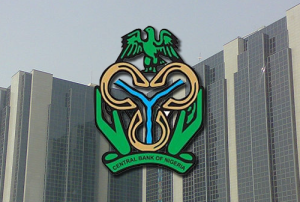The Central Bank of Nigeria has recovered N8.6 billion deducted by a Lagos-based software firm, SystemSpecs, which provided the e-Payment/e-Collection solution used for the transfer of government funds from commercial banks to the treasury single account (TSA) domiciled with it, THISDAY investigations have revealed.
The central bank, according to sources in the CBN, directed the company which owns the Remita software platform used for the funds transfer, when it was discovered that SystemSpecs had deducted as much as N8.6 billion for the remittance of government funds from banks to the TSA in the last few weeks.
Throwing more light on the e-Payment/e-Collection Remita software, which the Senate on Wednesday resolved to probe, CBN sources said the implementation of the modular solution was approved by the former CBN Governor who is currently the Emir of Kano, Alhaji Muhammad Sanusi II, and former CBN Deputy Governor, Operations, Mr. Tunde Lemo, in 2011 to facilitate the transfer of government revenue to the TSA.
On Wednesday, the Senate had ordered its joint Committee on Finance, Banking and Other Financial Institutions and Public Accounts to probe the allegation that the e-Collection agent, Remita, had been paid 25 billion, being the 1 per cent commission it charged for the transfer of N2.5 trillion of federal government funds to the TSA.
The motion, which was moved by Senator Dino Melaye and adopted by the Senate, held that the N25 billion payment was in gross violation of Section 162(1) of the 1999 Constitution which states that “the federation shall maintain a special account to be called the federation account into which all revenues collected by the government of the federation except the proceeds from the personal income tax of the personnel of the Armed Forces of the Federation, the Nigeria Police Force, the ministry or department of government charged with foreign affairs and the residents of the FCT, Abuja”.
However, investigations by THISDAY showed that Remita was not an agent or company, but the software platform used for the transfers, while SystemSpecs, whose Managing Director is Mr. John Obaro, is the owner of e-Payment/e-Collection solution.
The company’s website further revealed that the chairman of SystemSpecs is the former Director General of the Nigerian Broadcasting Commission, Dr. Christopher Kolade.
Other directors of the company include a former Executive Vice-Chairman of the Nigerian Communications Commission (NCC), Mr. Ernest Ndukwe, Mr. Emmanuel Ocholi, Mr. ‘Deremi Atanda and Dr. Emmanuel Eze.
Remita, which has been adopted by the CBN as the e-Payment and e-Collection platform of the federal government, is currently used by all 22 commercial banks and over 400 microfinance banks nationwide.
CBN sources informed THISDAY that contrary to the assertion of the Senate that N25 billion had been paid to SystemSpecs, it was N8.6 billion that was deducted by the company for the transfer of N1.5 trillion since the enforcement of the TSA by the current administration in the last few weeks.
“Remita is an e-Payment/e-Collection software that has been in place since 2011, because the TSA transfers started under the Goodluck Jonathan administration.
“It was Tunde Lemo’s baby and approved by former Governor Sanusi for the transfer of funds to the TSA.
“But when it was discovered that SystemSpecs had deducted about N8.6 billion for the recent TSA transfers of N1.5 trillion, we immediately asked them to reverse the deduction, which they complied with.
“The issue was brought to the attention of the president (Muhammadu Buhari) and he asked that the money be returned immediately which is what has happened.
“Going forward, it is our intention to review the contract on the software, because the CBN has its own software for e-Payments and e-Collections,” a CBN official, who did not want to be named, said.



The company provided legitimate service and earned legitimate money based on the agreement reached with its client which in this case is the federal government.
We can’t say we want to encourage the establishment and growth of indigenous companies and keep doing things like this.
This is changing the rules when the game has started. Why can’t we pay what is due to a Nigerian company when they provided service, is it that we don’t want to encourage growth of our indigenious firms. We will gladly pay this to a foreign company.